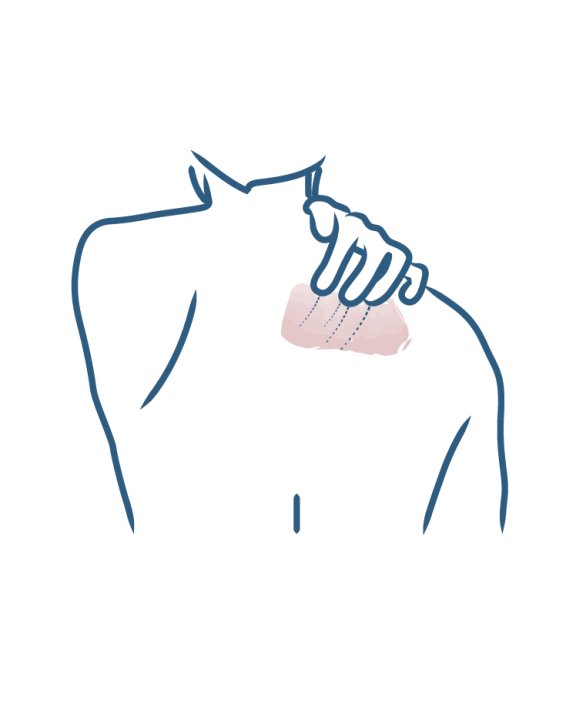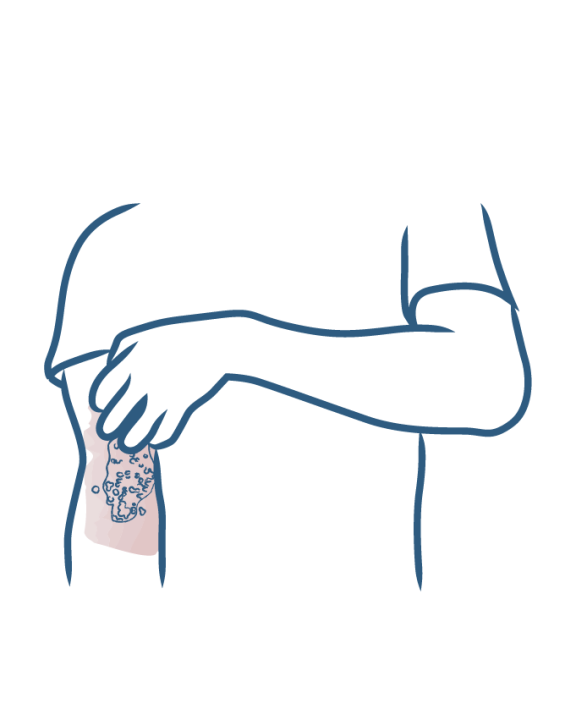Symptoms of an eczema flare-up
- SUMMARY
- Eczema
Eczema plaques, red plaques on the body
- Living with eczema day to day
- What are the habits to avoid when you have eczema?
- Eczema cream, ointment: what should you use?
- What soap should be used for eczema?
- Swimming pool, swimming when you have eczema?
- Eczema: can it be cured?
- Eczema: how to treat itching
- Eczema: what foods should you eat?
- Eczema: What daily reflexes should you adopt?
- Which detergent should eczema patients use?
- Eczema: how can flare-ups be avoided?
- What causes eczema?
- Clothing contact eczema
- Perspiration-induced eczema
- Contact eczema due to cosmetics
- Contact eczema due to medication and topical treatments
- Hereditary eczema
- Contact eczema due to cleaning products
- Contact eczema due to nickel and chromium
- Allergy-induced eczema
- Stress-induced eczema
- Body eczema: hands, feet, arms, back, face, etc.
- Arm eczema (elbows, armpits, forearms)
- Foot eczema
- Eczema in the ears
- Scalp eczema
- Eczema on the back
- Eczema on the stomach and belly button
- Eczema around the mouth
- Leg eczema or varicose eczema
- Eczema of the eyelids, eyes or palpebral eczema
- Eczema on the neck and nape of the neck
- Facial eczema
- Hand and finger eczema (chronic hand eczema)
- What is infantile eczema?
- Eczema in babies: what habits should you adopt?
- How should you treat baby’s and infant’s eczema?
- When should you consult a physician about your baby's eczema?
- Cortisone cream to relieve eczema?
- What soap should be used for babies with eczema?
- Eczema in babies and children: the areas most often affected

Eczema plaques, red plaques on the body
Eczema is a disease characterized by red plaques on the skin (eczema lesions). The location of the eczema plaques varies, but the mechanism by which they appear and disappear is always the same.
Acute eczema: four phases
Eczema plaques are red plaques that are poorly delineated, i.e., with poorly defined contours.
A flare-up of eczema, or acute eczema, consists of four successive phases:
- an "erythematous phase" during which red plaques appear;
- a "vesicular phase" marked by the presence of very small vesicles filled with a clear liquid;
- an "oozing phase" also called oozing eczema, in which the microvesicles break, on their own or after scratching;
- a "scabbing phase", followed by the disappearance of the lesion.
During a flare-up of eczema, it is usually not possible to separate these four phases, only the symptoms of eczema are observed, i.e. red, rough and itchy plaques. The eczema plaques heal without scarring, except in rare cases where scratching has been particularly intense.
Chronic eczema
Chronic eczema is characterized by a thickening of the skin. The skin often becomes darker and forms squares. Chronic eczema plaques are more common in older children and adults. These eczema plaques are more difficult to treat, but may eventually disappear in the same way as acute eczema plaques.
Why treat eczema plaques?
The various symptoms of eczema, namely red plaques, itching and dry skin, cause a lot of discomfort on a daily basis. The appearance of red plaques on the body and face can lead to a loss of self-confidence and fear of other people staring. Starting treatment at the first small eczema plaque can quickly stop the flare-up and improve quality of life, as well as avoid certain complications such as superinfections.
More information
- Discover Oozing, purulent eczema
Symptoms of an eczema flare-up
Oozing, purulent eczema
- Discover Cutaneous xerosis, dry skin related to eczema
Symptoms of an eczema flare-up
Cutaneous xerosis, dry skin related to eczema
Our care routines
Skin prone to atopic eczema, contact eczema, chronic eczema and/or, eyelid eczema
Dermatological expertise
To better understand your skin and hair, discover our exclusive content and innovative care products designed to improve your quality of life..





